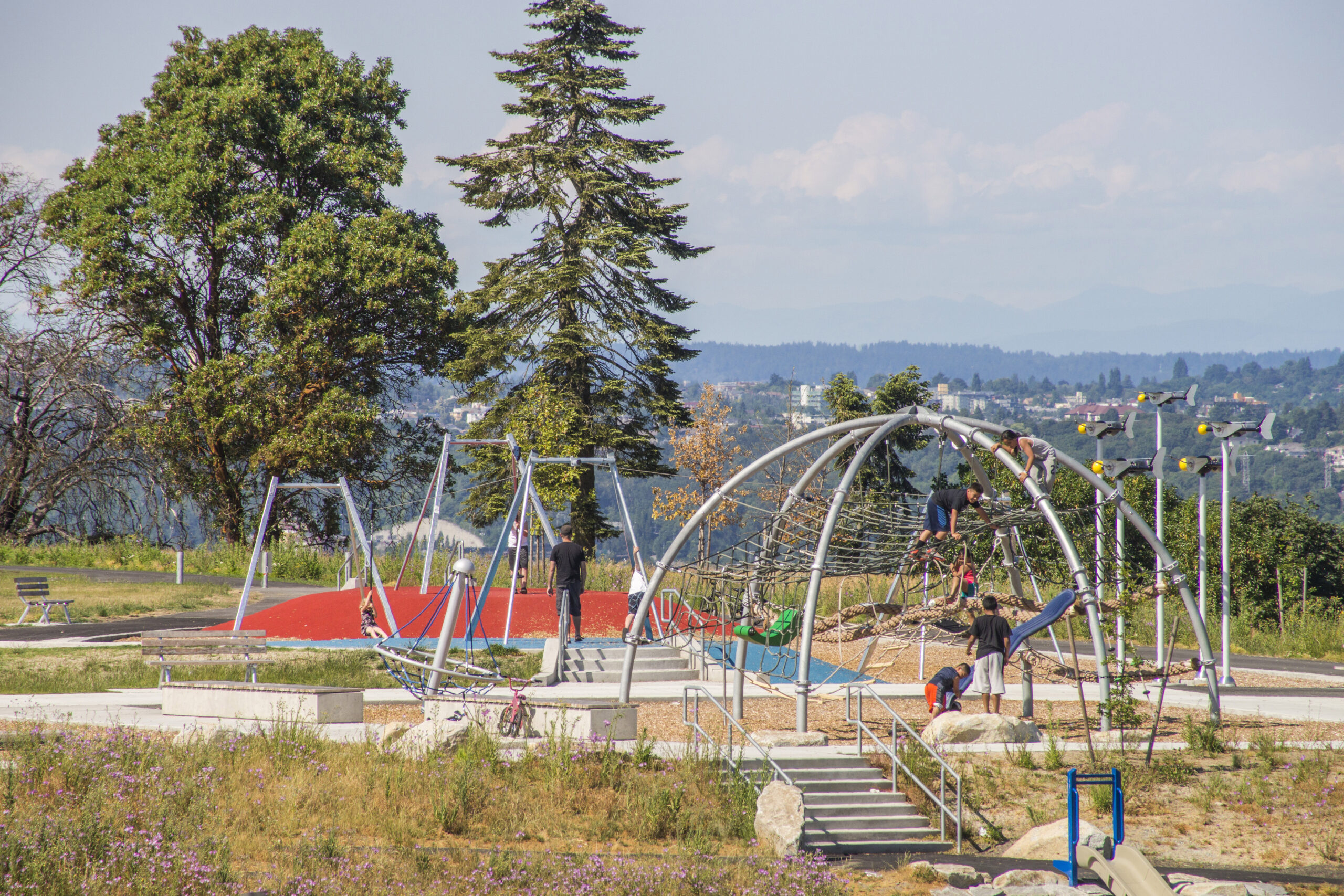
Many of the City of Seattle’s parks, playgrounds, pools, comfort stations and community centers were built before Congress passed the Americans with Disabilities Act in 1990. Ever since, local governments around the country have been chipping away at a backlog of renovations to add ramps, widen doorways and install elevators so that buildings and public spaces are accessible and welcoming for people with disabilities to navigate.
In 2017, Parks and Recreation was ready to renovate three community centers—Delridge, Garfield and Meadowbrook—and consulted a roster of qualified architects. Bellevue-based Ato Apiafi, the managing principal of an architecture firm, had previously attended a meet and greet where he was able to present his firm’s qualifications to project managers who eventually selected him for the job.
For a small WMBE architecture firm, local government contracts are a coveted opportunity.
“The great thing about doing work for the City is the steady work. They have lots of opportunities now and in the future,” Apiafi said. “If you do good work, it gives you a chance to grow.”
But project managers come and go. A few years later, Ato Apiafi Architects was no longer getting selected for projects. It was time to get back on the City’s radar. To that end, Apiafi was one of 200 people who attended the Capital Consultant Connection Open House on May 15 at Langston Hughes Performing Arts Center. The open house invited firms who work in civil and roadway engineering, construction management, and building and landscape architecture. The City brought project managers and representatives from Parks and Recreation, Seattle City Light, Seattle Public Utilities, the Seattle Department of Transportation, Finance and Administrative Services, and several other departments.
The open house was the first the City has held in over four years and will ideally be a regular event focusing on different vendor roster categories. In addition to architecture and engineering, there are plans for open houses to solicit vendors for construction and goods and services.
Lily Keeffe is a Procurement Equity and Supplier Management Advisor in the finance division at Seattle City Light. She was one of the co-organizers of the open house and plays a key role at these events: the warm hand-off.
“When you do a mixer, it’s hard for the firms to get noticed in a big crowd,” she said. That’s where Keefe and her colleagues come in. They serve as matchmakers who can introduce firms to the right project manager on-site, or request that a firm send a qualification statement and then broker an introduction later.
The most enduring future business relationships, however, are sparked by a face-to-face conversation. “Having project managers and end users be there is the most important thing,” she said. “It’s really hard to make the connection when the project manager is introduced only by email. When you meet people in person you go, ‘I like this company, I’d like to talk to them more.’”
Attending the Capital Consultant Connection Open House was an opportunity for firms like Ato Apiafi Architects to establish those face-to-face connections. After attending the open house, Apiafi was invited to an upcoming meeting for Seattle Parks & Recreation project managers and share his firm’s qualifications. “I am looking forward to cultivating business relationships for future projects opportunities,” said Apiafi.
Learn more about the Procurement Transformation project, and stay up to date by signing up for the Innovation & Performance newsletter.
Read more stories about promising practices in Seattle’s work to make City contracting more efficient, results-driven, equitable, and strategic:
- How Seattle Public Utilities’ On-Call Contracts Give Smaller Engineering Firms a Foot in the Door
- Concrete Results: How Procurement Office Hours Open Doors for Small Businesses
- Seattle City Light leans into efficiencies, time savings in contracting
- Audit Your Way to the Top: How Seattle IT Maximized WMBE Spending
- No Drill Sergeant Required: How Public Art Boot Camp Helps Early Career Artists Get in Shape
- On Ramps: How the Seattle Department of Transportation Shook Up Business as Usual in Public Engagement Contracts
- Dashing to Results: New FAS Dashboard Improves Procurement Efficiency
- Panels as Pathways: How ARTS Turns Grant Review into an Art Form
Seattle participated in the Bloomberg Philanthropies I-teams Procurement Cohort, a $1 million, two-year grant by Bloomberg Philanthropies to help transform our approach to buying. The Procurement Transformation project is a partnership between the Seattle Department of Finance and Administrative Services (FAS) and the Mayor’s Innovation and Performance Team, with technical assistance from the Harvard Kennedy School Government Performance Lab (GPL) and coaching calls from the Bloomberg Public Center for Innovation at Johns Hopkins University (BCPI). The project aims to transform City procurement to be more efficient, results-driven, equitable, and strategic. As part of this, the City is highlighting a multi-part series of stories that demonstrate citywide promising practices that can better support our WMBEs.